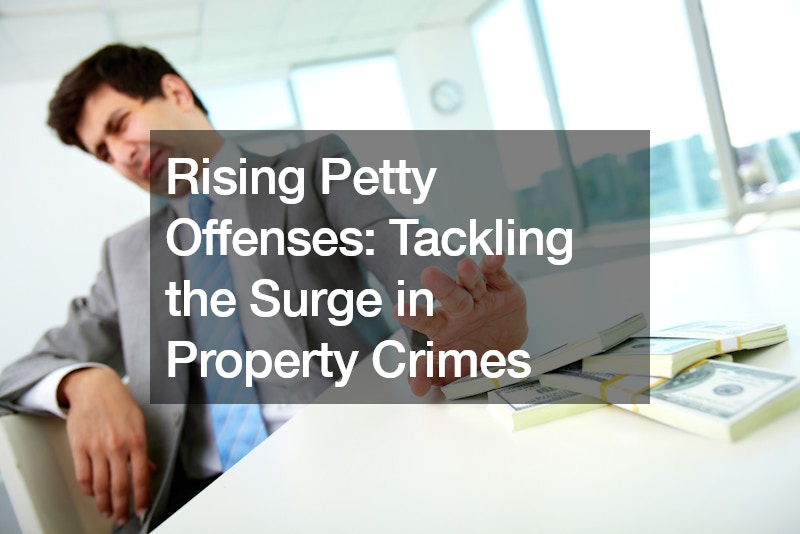
Recently, there has been a noticeable uptick in petty offenses, particularly property crimes, causing concern among residents and law enforcement alike. Though often considered minor compared to violent crimes, petty offenses have significant impacts on the community’s sense of safety and well-being. These crimes include vandalism, theft from vehicles, shoplifting, and other small-scale thefts, all contributing to a pervasive sense of insecurity.
One of the most prevalent petty offenses is vehicle theft. Many vehicle owners have returned to find their car windows shattered and personal belongings stolen.
This type of crime is not only a financial burden due to repair costs and the loss of valuables but also a psychological strain as it shatters the victim’s sense of security. The rise in such offenses has prompted calls for increased police patrols and better community vigilance.
Vandalism is another common petty offense that has increased. Public properties, including parks, schools, and community centers, often fall victim to vandalism, such as graffiti, broken windows, and damaged facilities. While these acts may seem inconsequential to the perpetrators, they have a cumulative negative effect on the community, leading to deteriorated public spaces and increased repair costs for local authorities.
Shoplifting, a long-standing retailer issue, has also surged. Retailers are grappling with the financial losses of stolen goods and the cost of implementing enhanced security measures. The increase in shoplifting incidents often leads to higher consumer prices as businesses try to offset their losses. Additionally, the presence of shoplifters can make shopping environments feel unsafe for customers and employees alike.
Addressing the surge in petty offenses requires a multifaceted approach. Law enforcement agencies are pivotal in this effort, with strategies that include increasing patrols in high-risk areas, employing surveillance technology, and implementing community policing initiatives. Community policing, in particular, emphasizes building relationships between police officers and community members to foster trust and cooperation. This approach helps identify potential crime hotspots and encourages residents to participate in crime prevention efforts.
Community engagement is another crucial element in tackling petty offenses. Neighborhood watch programs have proven effective in deterring crime by encouraging residents to report suspicious activities and look out for one another. These programs foster a sense of collective responsibility and empower communities to take proactive steps in safeguarding their surroundings.
Furthermore, addressing the root causes of petty offenses is essential. Many individuals who commit these crimes do so out of economic necessity or due to underlying social issues such as substance abuse or mental health problems. Implementing social programs that provide support and resources for at-risk individuals can help mitigate the factors that lead to petty offenses. Job training programs, substance abuse counseling, and mental health services are vital components of a comprehensive crime prevention strategy.
Education and awareness campaigns also play a significant role. Informing the public about the impacts of petty offenses and how they can contribute to crime prevention helps build a more vigilant and responsible community. These campaigns can be conducted through schools, community centers, and social media platforms to reach a broad audience.
In conclusion, the rise in petty offenses, particularly property crimes, poses a challenge that requires a coordinated response from law enforcement, community members, and social services. By enhancing policing efforts, fostering community engagement, addressing underlying social issues, and raising public awareness, it is possible to curb the surge in petty offenses and restore a sense of safety and security in our communities.
.




